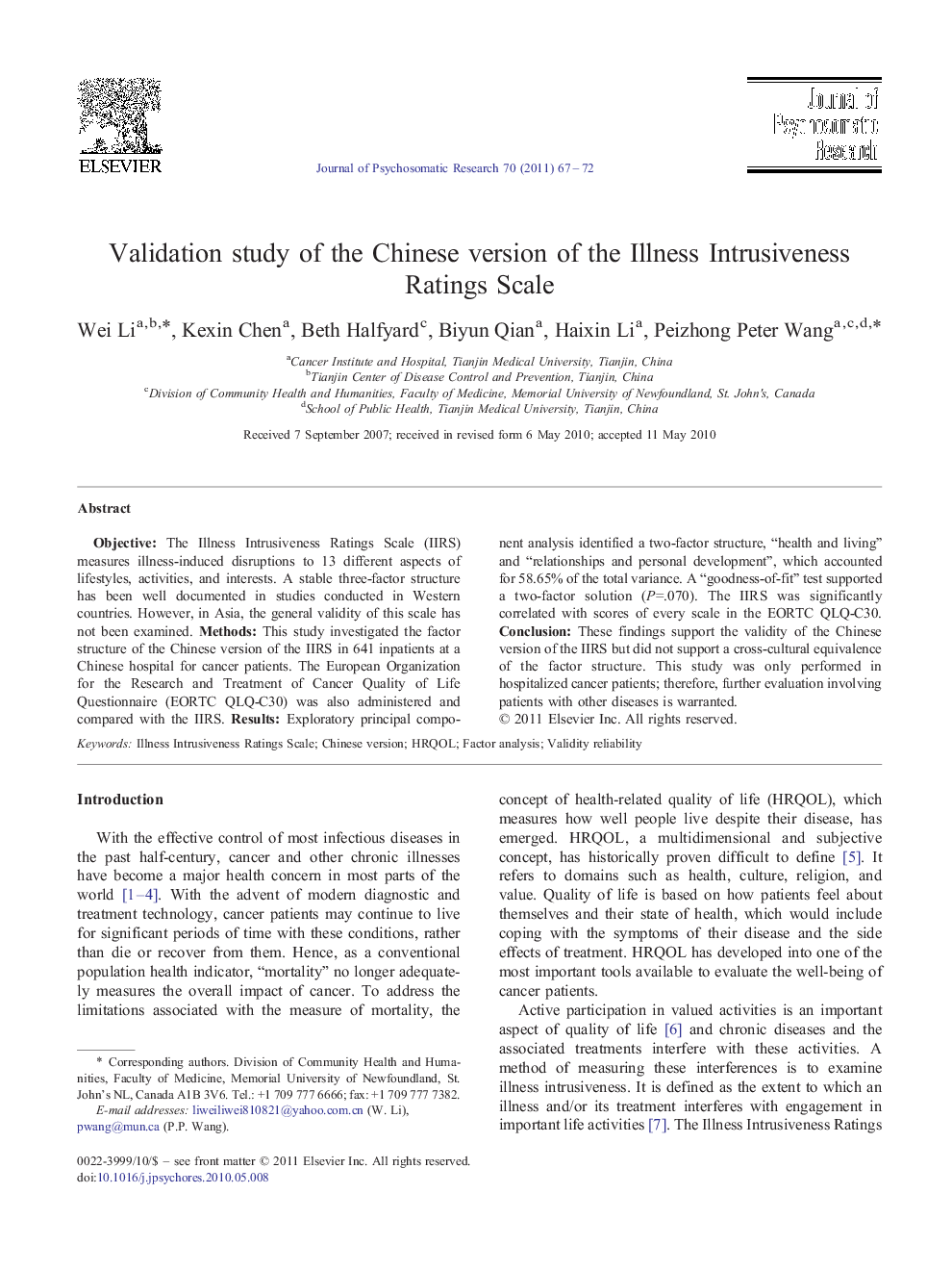| Article ID | Journal | Published Year | Pages | File Type |
|---|---|---|---|---|
| 950253 | Journal of Psychosomatic Research | 2011 | 6 Pages |
ObjectiveThe Illness Intrusiveness Ratings Scale (IIRS) measures illness-induced disruptions to 13 different aspects of lifestyles, activities, and interests. A stable three-factor structure has been well documented in studies conducted in Western countries. However, in Asia, the general validity of this scale has not been examined.MethodsThis study investigated the factor structure of the Chinese version of the IIRS in 641 inpatients at a Chinese hospital for cancer patients. The European Organization for the Research and Treatment of Cancer Quality of Life Questionnaire (EORTC QLQ-C30) was also administered and compared with the IIRS.ResultsExploratory principal component analysis identified a two-factor structure, “health and living” and “relationships and personal development”, which accounted for 58.65% of the total variance. A “goodness-of-fit” test supported a two-factor solution (P=.070). The IIRS was significantly correlated with scores of every scale in the EORTC QLQ-C30.ConclusionThese findings support the validity of the Chinese version of the IIRS but did not support a cross-cultural equivalence of the factor structure. This study was only performed in hospitalized cancer patients; therefore, further evaluation involving patients with other diseases is warranted.
